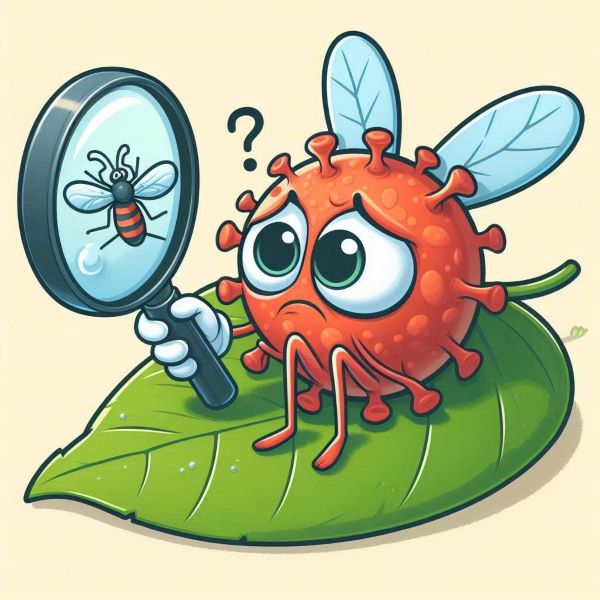The Zika virus, a mosquito-borne illness, has emerged as a significant global health concern in recent years. First identified in Uganda in 1947, the Zika virus remained relatively obscure until a major outbreak occurred in Brazil in 2015, leading to widespread attention due to its severe health implications, particularly in pregnant women. This article covers all aspects of the Zika virus, including its transmission, symptoms, diagnosis, treatment, prevention, and frequently asked questions. (Source)
Transmission of Zika Virus
It is primarily transmitted through the bite of infected Aedes mosquitoes, specifically Aedes aegypti and Aedes albopictus. These mosquitoes are also responsible for spreading other viruses such as dengue, chikungunya, and yellow fever. Key modes of this virus transmission include:
- Mosquito Bites: The primary mode of transmission is through the bite of an infected Aedes mosquito.
- Mother-to-Child Transmission: A pregnant woman can pass the virus to her fetus, potentially leading to congenital Zika syndrome.
- Sexual Transmission: The virus can be transmitted through sexual contact with an infected person.
- Blood Transfusion: In rare cases, Zika virus can be transmitted through blood transfusions. (Source)
Symptoms of Zika Virus Infection
Most people infected with this virus experience mild symptoms, or none at all. When symptoms do occur, they typically appear 2 to 7 days after being bitten by an infected mosquito and can last for several days to a week. Common symptoms include:
- Fever
- Rash
- Headache
- Joint pain
- Conjunctivitis (red eyes)
- Muscle pain
Severe cases are rare, but the virus can lead to neurological complications such as Guillain-Barré syndrome. (Source)
Zika Virus and Pregnancy
It poses a significant risk to pregnant women due to its potential impact on the developing fetus. Congenital Zika syndrome can result in:
- Microcephaly (a condition where a baby’s head is significantly smaller than expected)
- Brain defects
- Eye defects
- Hearing loss
- Impaired growth
Diagnosis of Zika Virus
Diagnosing this virus involves clinical evaluation and laboratory tests. Common diagnostic methods include:
- RT-PCR (Reverse Transcription Polymerase Chain Reaction): Detects viral RNA in blood, urine, or saliva samples.
- Serological Tests: Detect antibodies against this virus in the blood, although these can sometimes cross-react with other flaviviruses like dengue. (Source)
Treatment and Management
There is no specific antiviral treatment for this virus infection. Management focuses on relieving symptoms and includes:
- Rest: Patients are advised to get plenty of rest.
- Hydration: Drinking fluids to prevent dehydration.
- Medication: Taking acetaminophen (paracetamol) to reduce fever and pain. Aspirin and non-steroidal anti-inflammatory drugs (NSAIDs) should be avoided due to the risk of bleeding.
Prevention Strategies
Preventing this virus infection involves several strategies to reduce mosquito bites and control mosquito populations:
- Mosquito Control: Eliminating standing water where mosquitoes breed, using insecticides, and implementing community-wide mosquito control programs.
- Personal Protection: Using insect repellent, wearing long-sleeved clothing, and sleeping under mosquito nets.
- Travel Precautions: Pregnant women or women planning to become pregnant should avoid traveling to areas with active Zika transmission.
- Safe Sex Practices: Using condoms or abstaining from sex during pregnancy if the partner has traveled to an area with this virus.
Also, watch web stories: Why You Shouldn’t Smoke After Eating Food
Public Health Measures
Public health authorities play a crucial role in controlling this virus outbreaks through the following measures:
- Surveillance: Monitoring and reporting cases to detect outbreaks early.
- Community Education: Raising awareness about the risks of Zika virus and preventive measures.
- Research and Development: Investing in research to develop effective treatments and vaccines for Zika virus.
Statistics and Facts
- This virus was first discovered in 1947 in the Zika Forest of Uganda.
- The largest outbreak occurred in Brazil in 2015-2016, with over 200,000 reported cases.
- This virus has been reported in over 86 countries and territories.
- The World Health Organization (WHO) declared Zika virus a Public Health Emergency of International Concern in February 2016.
Frequently Asked Questions (FAQs)
Q1: What is Zika virus? A: Zika virus is a mosquito-borne virus that can cause mild symptoms like fever and rash but poses significant risks to pregnant women and their developing fetuses.
Q2: How is this virus transmitted? A: The virus is primarily transmitted through the bite of infected Aedes mosquitoes. It can also be transmitted from mother to child, through sexual contact, and rarely through blood transfusions.
Q3: What are the symptoms of Zika virus infection? A: Symptoms include fever, rash, headache, joint pain, conjunctivitis, and muscle pain. Most cases are mild, and severe complications are rare.
Q4: How is Zika virus diagnosed? A: Diagnosis involves clinical evaluation and laboratory tests such as RT-PCR to detect viral RNA and serological tests to detect antibodies.
Q5: Is there a specific treatment for this virus? A: There is no specific antiviral treatment. Management focuses on relieving symptoms through rest, hydration, and acetaminophen for fever and pain.
Q6: How can this virus infection be prevented? A: Preventive measures include mosquito control, personal protection, safe sex practices, and travel precautions for pregnant women.
Q7: What should I do if I suspect I have Zika virus infection? A: Seek medical attention for proper diagnosis and management of symptoms. Avoid mosquito bites to prevent further transmission.
Q8: Are there any ongoing research efforts for Zika virus? A: Yes, research is focused on understanding the virus, developing potential treatments, and creating effective vaccines.
Conclusion
It remains a significant public health challenge due to its impact on pregnant women and potential for widespread outbreaks. Awareness, early diagnosis, and effective preventive measures are essential in combating this virus. Public health initiatives and ongoing research play a vital role in controlling outbreaks and protecting vulnerable populations.





